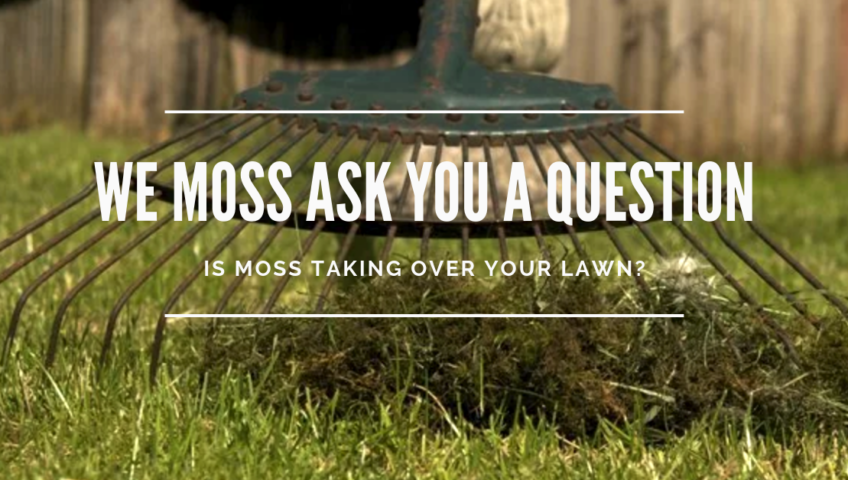With all the recent rain, moss may becoming more prominent in your lawn… but removing it can be easy!
The Quad Cities has experienced lots of rain and wet conditions over the last couple months, which may have contributed to the growth of moss in your lawn. Moss loves the damp, shady areas around your lawn and landscape, but with a little TLC removing this pesty plant can be easy!
Why is moss common in your lawn or garden this year?
Mosses are adaptable, opportunistic plants. They can live and grown in a wide variety of locations, but are most often found in moist, shady areas. The wet winter and large amount of rainfall in the Quad Cities over the last year has made favorable growing conditions for moss.
How do I remove moss from my lawn?
Break out the rake! Moss can be temporarily removed by hand raking. Mosses don’t have true roots so they should easily come up from your lawn. The trick is to rake moss from different angles to loosen and lift it. Then, collect and toss the moss into your compost bin or lawn bags and discard. Remember, this removal method is just a temporary solution. This won’t solve the underlying issue that is causing the moss to grow in your lawn.
Let’s make moss move on!
There’s a few different reasons that moss like your lawn… Don’t worry Greenspace is able to offer up solutions on them!
Soggy soil – We can’t control the weather, but we can control how water drains from your lawn and how much we water. Give Greenspace a call to talk about drainage solutions or cut back on watering.
Too much shade – a spring pruning of the low-hanging branches on trees and shrubs could allow more light into the area.
Compacted soil – heavily compacted soil can impact your grass growth by preventing water and nutrients from getting into the roots. Aerate your lawn in the fall or as needed to break up the soil.
Poor Soil – the soil’s pH and nutrient levels can be tested and tell you a lot about your lawn. Check your local hardware or lawn and garden store for soil test kits. If your lawn is acidic or has fertility issues – which is bad for grass but great for moss – there are supplements or fertilizers to remedy the situation.

